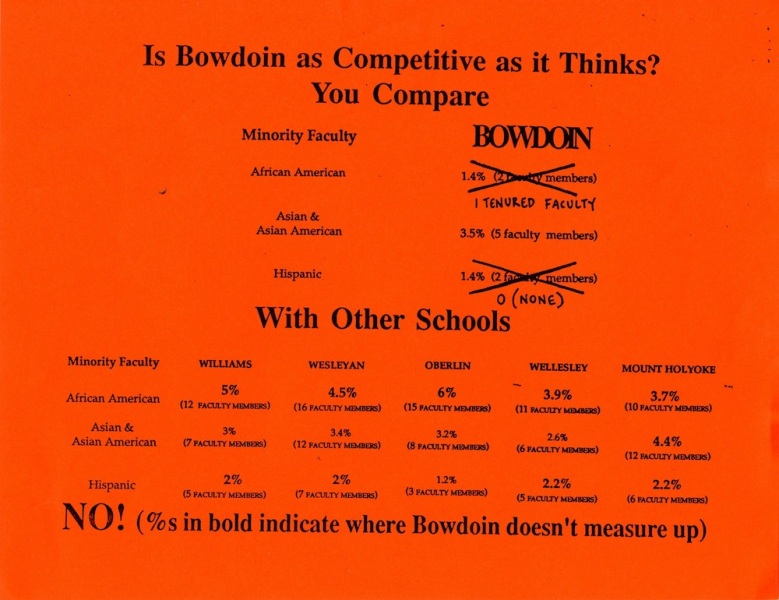In the establishment of the Africana Studies program, the Committee for Afro-American Studies (CAAS) requested only one full-time appointment in the program, the director, perhaps as a means of expediting its approval—the College would only have to fund one new faculty line. In practice, that meant the faculty director not only taught but managed the program, developed curriculum, and advised majors as well as the African American Society. This arrangement persisted for forty years, making the contribution of students’ time, effort, and advocacy to the program invaluable.
Coalition of Concerned Students
Student and faculty frustration over the lack of diversity at Bowdoin fomented throughout the 1980s, eventually resulting in protests, but little progress, at the end of the decade. At the twentieth anniversary of the program, Society, and Center, Society President Shelby Cogdell ’91 said in an interview with the Orient that their slow progress over twenty years “should be shameful to Bowdoin.” Finally, in November 1990—the first semester of President Robert H. Edwards’ term—the Society, along with the group Coalition of Concerned Students, staged several protests and sit-ins to urge the College to treat the dearth of diverse faculty as a campus emergency.
